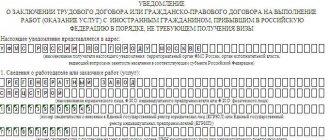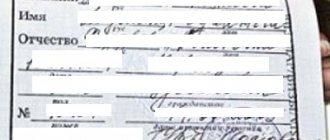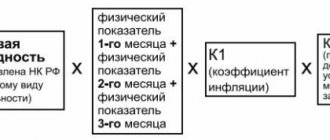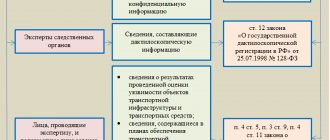General information from this law
There was real confusion in the housing sector until December 2012. Many citizens are accustomed to the fact that major repairs are carried out by the state , while others have long paid for the modernization of their apartment building from their own funds (read how legal such fees for major repairs are here, and from this material you will find out whether such contributions were declared illegal by the Constitutional Court and the Prosecutor General's Office of the Russian Federation ).
In December 2012, the Government of our country adopted Law No. 271 - Federal Law on Major Repairs - and signed by the President of the country. This regulatory act not only introduced a grain of reason into the Housing Code, which had been confusing up to this point, but also contained some innovations. You can learn more about the innovations that have been introduced into the legislation regarding major repairs recently from a separate publication, and if there is a law in the Russian Federation regulating the procedure for carrying out major repairs, read here.
This regulatory act was called the Federal Law on Amendments to the Housing Code of the country, as well as some other regulations No. 271 of December 25, 2012. The Federal Law on Payment for Major Repairs conveys information that citizens are required to pay their own fees for major repairs . Before this, no law had ever regulated this item.
In addition, now the Federal Law on the exemption of fees for major repairs has also acquired a list of persons who, to one degree or another, are fully or partially exempt from payments . Until the release of Law 271 on capital repairs, the categories of beneficiaries were not clearly defined, and this issue remained under regional rather than federal jurisdiction.
The new regulatory legal act has become a kind of code that contains all the nuances of implementation and preparation for major repairs. It is curious that the Federal Law on the payment of contributions for major repairs, at the official level, allowed the regions to independently set the cost of the contribution for each square meter of real estate.
Reference: cities of federal significance (Moscow and St. Petersburg) must pay amounts slightly higher than other settlements of regional or district significance.
The reaction of citizens to this regulatory act was ambiguous. Someone was glad that the time of arbitrariness on the part of unscrupulous owners and employees of management organizations would finally end and the repairs would be carried out not only in accordance with the deadlines, but also in accordance with the regulations. Some, on the contrary, were outraged by the legally established obligation to pay contributions without fail .
Some did not like the inflated prices for tariffs in comparison with other regions, and others were horrified by the established sanctions for non-payment (Article 155). One way or another, Federal Law 271 - the Federal Law on Major Repairs, did not leave anyone indifferent, however, its individual articles deserve close attention.
However, this normative act cannot cover all issues related to overhaul. Thus, issues related to the formation of the fund relate to Law 185 on capital repairs. The nuances of carrying out major repairs and the selection of personnel to carry out the work are not related to the maintenance of these acts. However, to do this, you can refer to the Federal Law and, by placing a tender, select the most profitable supplier of services and materials.
Who is obligated to pay?
Contributions towards major repairs in accordance with current legislation are not voluntary, but mandatory. In case of prolonged evasion of payment, the following sanctions may be applied to the apartment owner:
- Each day of delay will cost 1/300 of the current Central Bank refinancing rate.
- If the case goes to court, legal costs will be added to the amount owed.
- The presence of debts on utility bills, including for major repairs, may become the basis for a ban on leaving the country.
- Unpaid due bills hinder real estate transactions. Since the debt is transferred to the new owner, a reasonable buyer in most cases refuses to enter into a contract upon learning about the debt.
By default, all owners of apartments in multi-storey residential buildings must make contributions for major repairs, regardless of whether they are residents of these buildings. Owners of commercial space in these buildings have similar obligations. In connection with the latest changes, property owners in new buildings are exempt from payments for major repairs for a period of 5 years from the date of commissioning of the building.
In addition, the law states that at the local level, regional authorities can provide preferential payment terms to some citizens.
- Single pensioners over 70 years of age,
- Disabled people of the first or second group,
- Children with disabilities
- Parents with disabled children.
As part of assistance to the poor, it is envisaged to reduce the financial burden by reducing the amount of payment for major repairs, if the total amount of utility bills begins to amount to more than 18% of the owner’s income.
The only legal way not to pay for major repairs is to return the apartment to the state, that is, to refuse privatization. Then the living space again becomes municipal, there is no need to make contributions for major repairs, but it will also be impossible to sell, bequeath, or donate the apartment.
There are also options in which the amount of paid fees is returned to the owner of the apartment. If the building is recognized as unsafe and cannot be restored, or its location will be used in the future for the needs of the city, that is, a plan for demolition of the house is adopted, apartment owners are exempt from paying for major repairs, and the money previously paid can be returned.
What does the law say?
Federal Law on major repairs of apartment buildings 271
The adoption by the State Duma of this Federal Law was the beginning of the creation of a legal basis for the implementation of capital repair mechanisms in all regions of our country.
The main innovation in this act was the assignment of responsibilities for financing these works to the owners of premises in an apartment building.
Thus, Article 170 of this law states that the capital repair fund is formed by contributions from owners commensurate with the size of the property. Unfortunately, the law does not provide for amendments regarding liability for failure to carry out major repairs for owners and government agencies. But more than half of our country’s housing stock needs work.
It is important that the amendments made to Article 166 have now finally clarified the situation in terms of what specific work is included in the overhaul . Residents can familiarize themselves with the list and check for themselves how well the repair work has been carried out. What if you don’t pay for major repairs under Law 271? Despite all of the above, responsibility for the maintenance of housing in an apartment building lies with the owners in accordance with Article 158 of the Housing Code.
Overhaul according to Federal Law 185
Federal Law 185 on capital repairs of apartment buildings dated July 21, 2007 talks about exactly how the capital repair fund is formed, how it is opened, and also which structures can be entrusted with this action.
This regulatory act is a kind of manual for homeowners in an apartment building, which will tell you how to act after the delivery of the house when opening a fund for major repairs. It is useful for residents to know not only how this fund is formed, but also how specific checks and reporting on spent funds are carried out (Article 13 of the law).
In addition, it is important for residents to know that if they are in line to receive major repairs in their home, they can count on subsidies from the state. There are a number of state and regional programs that help citizens obtain additional funds for modernizing premises. This regulatory act, namely Article 20, describes the nature of subsidies, as well as the method of receiving them.
Major repairs according to 44 Federal Laws
Federal Law No. 44 of April 5, 2013 is considered the main regulatory act in the field of government contracts and procurement.
It is there that tenders are awarded and suppliers of various materials and services offer their services.
Many government organizations, including administrations and management companies formed by homeowners' associations, resort to this law in order to carry out major repairs in the most profitable manner.
This regulatory act talks about how to become a procurement participant, how to form tenders, select suppliers and what requirements your orders must meet. This law also describes the nuances of various types of procurement (Article 108 of the law).
Important! If you are new to the procurement field, you can first familiarize yourself with the general provisions , which will reveal to you the meaning of this process.
On our website you can also find out in more detail how the law regulates issues related to major repairs, what is said regarding this in the decisions of the Government, the Supreme Court and the Constitutional Court of the Russian Federation, and whether it is possible in court not to pay contributions for major repairs.
Law on capital repairs of residential apartment buildings
- replacement of structural parts unsuitable for use - roof, basement, utility rooms, facade, elevator, staircase and so on;
- restoration of the fundamental part of a residential building;
- carrying out repair work of communication systems - power supply, water supply and so on;
- equipping an apartment building with meters for consumed resources.
The minimum amount of payment for major repairs, according to Federal Law 271, is determined by the regulatory act of the constituent entity of Russia. The act complies with the methodological recommendations approved by the government of the Russian Federation. According to the provisions of the law, the amount of payment for major repairs is calculated based on the occupied space in an apartment building.
We recommend reading: Where to get a certificate that no one is registered in the apartment
Have any changes been made?
These regulations are constantly subject to amendments and additions. Thus, Federal Law No. 44 on public procurement is subject to changes annually. As of today, the edition dated June 2, 2016, number 21, is in effect. Reaction 22 of June 2, with changes that have not yet entered into force, is being prepared for entry into force.
As for Federal Law No. 185, this act has been amended more than 30 times. Today, for Federal Law 185 - major overhaul, current edition 32 dated June 2, 2021 . 271 of the Federal Law on the major repairs of apartment buildings, as amended, has only two editions, since it is very new and so far suits the State Duma. Today the second edition dated June 29, 2015 .
We describe in a separate publication what changes regarding major repairs have been made to legislative acts recently.
In order to demand legal overhaul, the residents themselves first need to be familiar with the rules of law and know where their rights and interests begin and end. Only awareness guarantees that your interests are served.
New amendments
In the course of the latest amendments to the Federal Law on Major Repairs dated June 29, 2015, paragraphs 2 and 3 of Part 4 of Article 170 were declared invalid. Thus, when deciding to open a special account for transferring contributions for major repairs to it at a general meeting of owners, the following must be determined:
- the amount of the monthly capital contribution, which must be no less than the norm established by the authorities of the constituent entity of the Russian Federation;
- owner of a special account;
- the organization in which the special account will be opened, as well as the procedure for carrying out transactions with it and the persons responsible for transfers.
Payment of contributions is carried out according to special payment documents provided by the regional operator along with utilities, unless the legislation of the subject provides for other conditions.
Organization of major repairs
The decision to carry out major repairs in a building is made by a meeting of residents of an apartment building - this is the main governing body of the building. The decision on the need for repair work can also be made by the authorized local government body. The decision is made by drawing up a protocol.
At least six months before the repairs will be carried out, it is necessary to solve problems regarding opening an account, how to form a fund for repair work, determining the scope of work and the company that will need to perform repair and construction services. A set of works can be aimed at eliminating problems with the facade, roof, foundation, basements, and utilities.
Stages of major renovations in a building:
- it is necessary to clarify the period when repair work must be carried out. Period data can be obtained from the capital improvement program, which is publicly available. The program is developed for a long term, but provides a short-term plan - for a period of 1-3 years.
- Decision-making by a meeting of residents.
- Selecting the organization that will carry out the work. An agreement must be concluded with this organization. The document contains information about all services and their costs.
- Work acceptance certificate, control operations.
- Payment for work.
- Notification of authorized bodies about the work performed.
Special account
Carrying out major repairs of common property requires opening a special account into which funds are deposited for major repairs in an apartment building.
A special account is an account intended to record funds from the capital repair fund.
All money accumulated here will be used to implement the necessary capital work - replacement, repair, reconstruction of systems and various elements of common property in an apartment building.
An account is opened with a specialized credit institution. The purpose of the account is to generate from contributions the amount that will be used to carry out major repairs in an apartment building. According to the provisions of the law, the specified purpose provides for the use of these financial resources exclusively for major repairs, which is recorded in Article 166 of the Housing Code of the Russian Federation.
The following works and services can be paid for from the funds that I create a special account for major repairs:
- materials used during repair work in the building;
- services of a specialized company that deals with repairs;
- development of design documentation for major repairs;
- repayment of loans that were necessary for major repairs;
- construction control services;
- in the case of work with emergency houses, funds are used for the reconstruction or demolition of this structure.
Types of work that are financed by a special account:
- work on the roof of a building;
- repair of utilities;
- repair of elevator equipment;
- facade works;
- repair work on the foundation of a residential apartment building;
- renovating the basement of a house.









